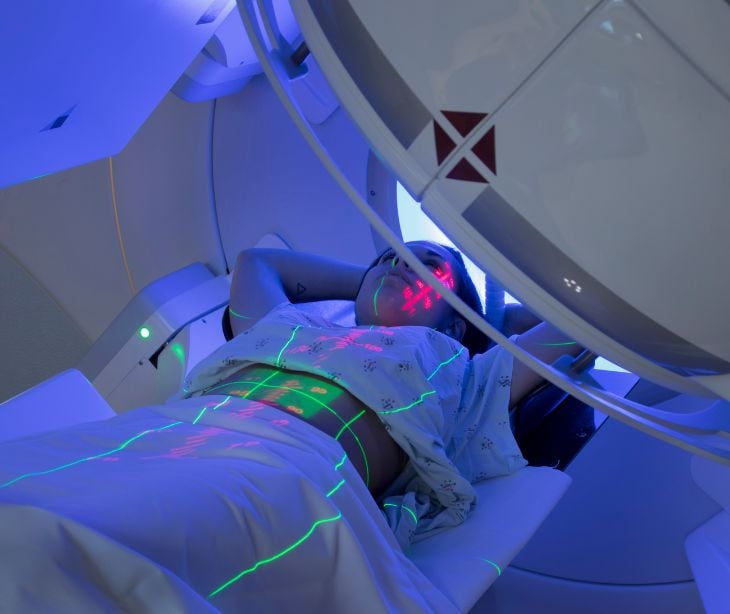2 min read
How HIPAA compliant email can increase awareness of Jeavons Syndrome
Caitlin Anthoney September 12, 2024

Jeavons Syndrome (JS), a form of epilepsy, is often underdiagnosed. Despite being identified in medical literature, it remains unfamiliar to many healthcare providers and the public.
Healthcare organizations can use HIPAA compliant emails to help raise awareness among providers for earlier diagnosis and treatment outcomes among those with JS.
What is Jeavons Syndrome (JS)?
“Epilepsy with eyelid myoclonia (EEM), also known as Jeavons syndrome, accounts for approximately 1.2-2.7% of people seen at some epilepsy centers... It is a generalized epilepsy syndrome with onset usually occurring between 1 to 15 years of age…”. These children, usually have “prominent eyelid myoclonia, which is a jerking or flickering up of the eyelids associated with the eyes rolling up, typically occurring many times in a single day,” CURE Epilepsy.
While people with JS have typical intellectual abilities, the “eyelid myoclonia may interfere with schoolwork and attention.” Additionally, these individuals can suffer from anxiety and depression, since these are “common conditions seen in patients with epilepsy.”
Read also: Using HIPAA compliant email for depression and anxiety follow-ups
Increasing awareness of JS
According to the Epilepsy Foundation, JS is a “rare form of generalized epilepsy,” however, a literature review on the pitfalls of Jeavons syndrome diagnosis argues that JS is more likely to be “underdiagnosed rather than have a rare prevalence.”
Specifically, the review states that JS symptoms are “usually overlooked” and the time taken between seizure onset and clinical diagnosis suggests that this syndrome continues to be under-recognized.
Neuroscience PhD candidate Demi Oddes, who was diagnosed with JS at the age of 12 adds, “The most important thing is, of course, more research. Also, talking about it and bringing awareness is a very important part. Whether you are a patient or a doctor admitting that you do not know and conferring with other people who know more than you, [can] truly benefit people. That's exactly how I finally got the diagnosis and treatment I needed.”
Ultimately, providers must increase JS awareness to improve the chances of early diagnosis and treatment outcomes.
How HIPAA compliant emails can help
HIPAA compliant emails use advanced security measures like access controls, two-factor authentication, and encryption, safeguarding protected health information (PHI) in these emails.
It allows medical organizations and epilepsy specialists to raise JS awareness while maintaining patient privacy.
Specifically, HIPAA compliant emails can:
- Share information on recognizing JS symptoms, like eyelid myoclonia.
- Distribute research updates or clinical guidelines on diagnosing and treating JS.
- Inform other specialists or referring physicians about advancements in treatment options.
At the same time, clinics and hospitals can send resources to patients and their families educational materials through secure emails. These resources should explain what to watch for and how to get medical advice if they suspect JS.
Follow-up care
Providers can use HIPAA compliant emails to collaborate across different healthcare settings, improving communication between neurologists, general practitioners, and epilepsy specialists. It allows these providers to send follow-up appointment reminders or suggest new treatment options to help patients manage JS.
Spreading awareness through outreach
HIPAA compliant email campaigns can help raise awareness of JS on a larger scale. Hospitals, epilepsy centers, and advocacy organizations can use email to:
- Send newsletters about ongoing research into Jeavons Syndrome.
- Share success stories to showcase improved patient outcomes with early diagnoses.
- Promote educational seminars for medical professionals and the public.
Read also: Improving epilepsy care with HIPAA compliant emails
FAQs
What types of information are protected under HIPAA?
HIPAA protects individually identifiable health information, including diagnoses, treatment plans, and medical records.
What makes an email HIPAA compliant?
HIPAA compliant emails safeguard protected health information (PHI) by using encryption, authentication methods, and audit trails. Providers should first obtain explicit patient authorization before sending any communication and only include the minimum necessary information.
Read also: How to get consent for texting and emailing patients
Can providers forward patient emails to other healthcare professionals?
Yes, once a provider has obtained patient consent, they can use a HIPAA compliant emailing platform, like Paubox, to forward patient emails to other healthcare providers.
Subscribe to Paubox Weekly
Every Friday we'll bring you the most important news from Paubox. Our aim is to make you smarter, faster.



